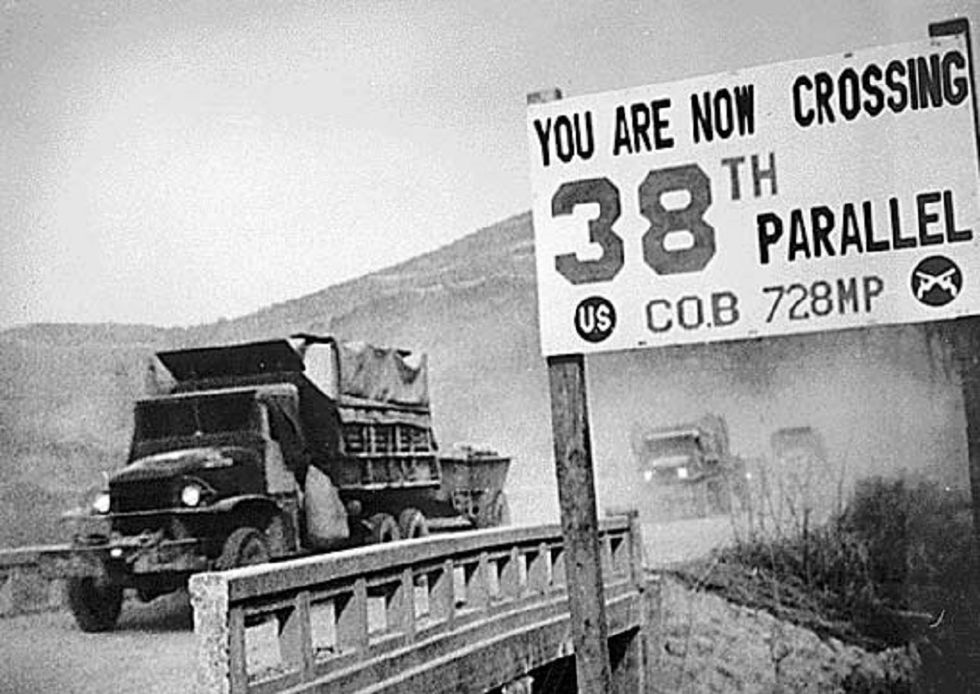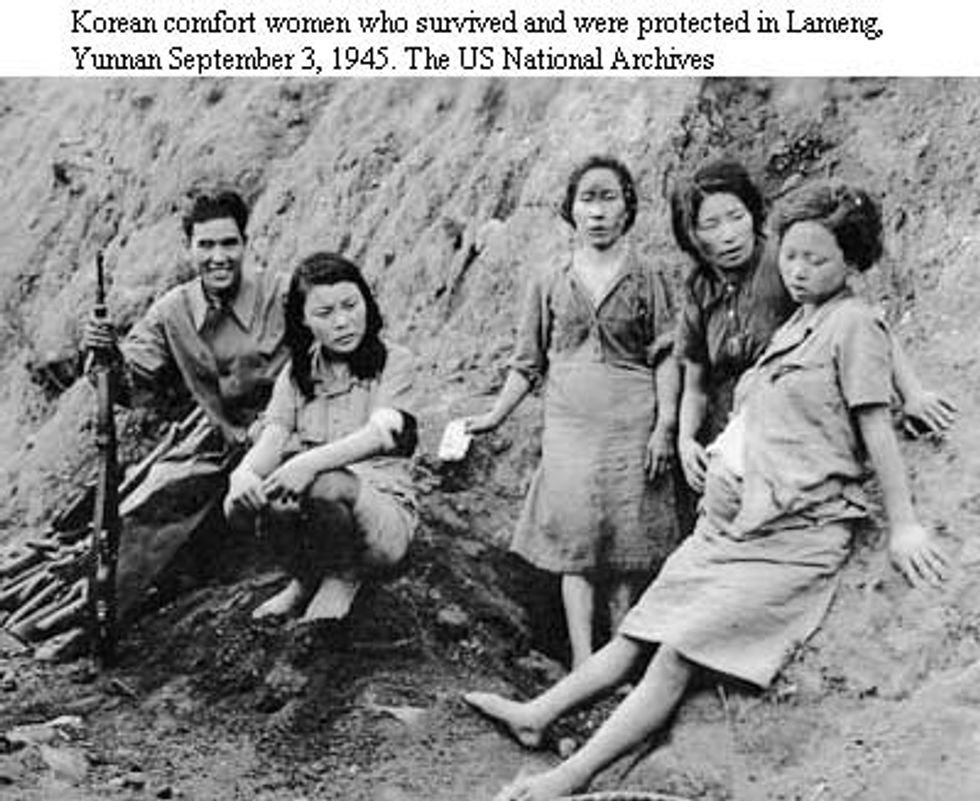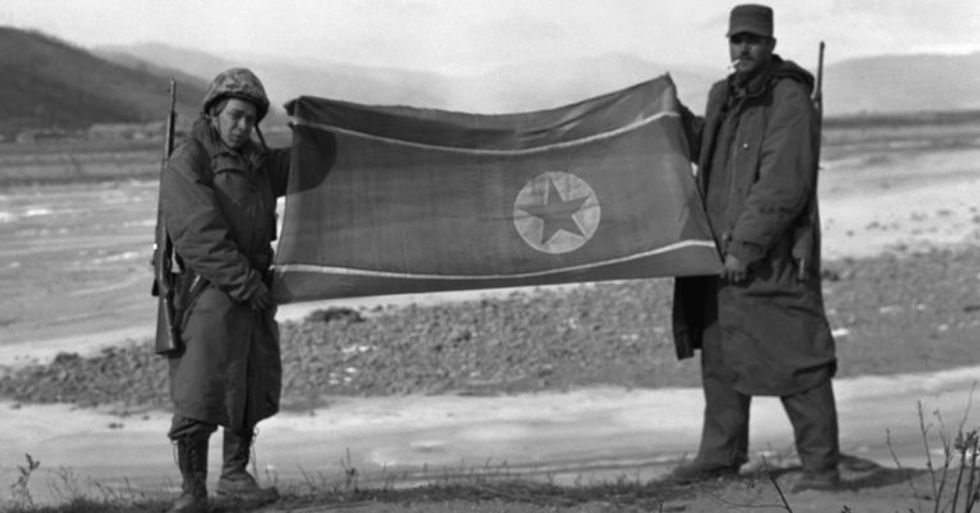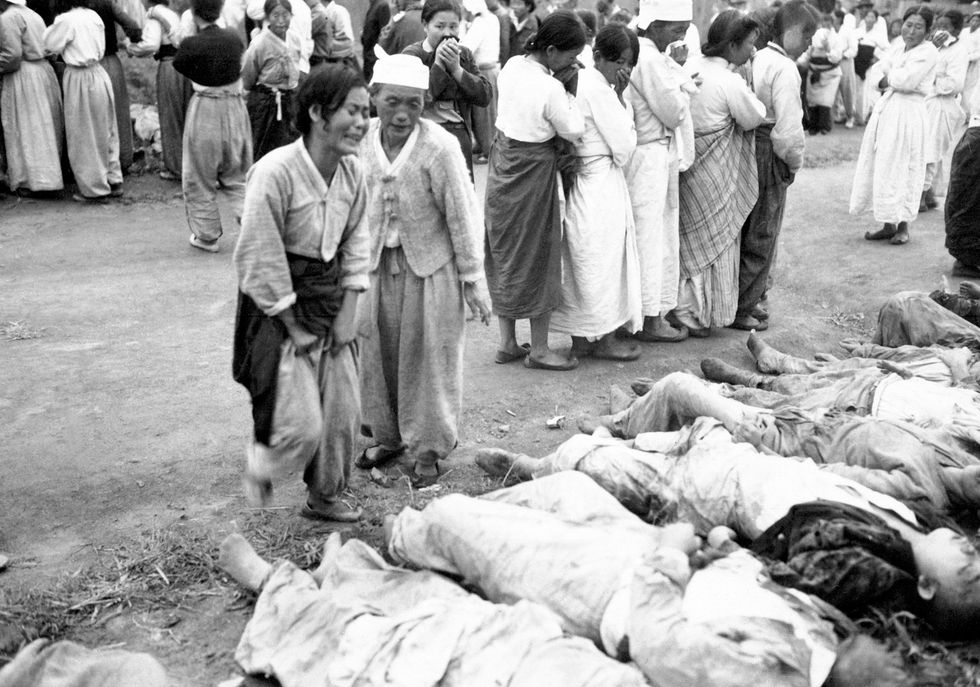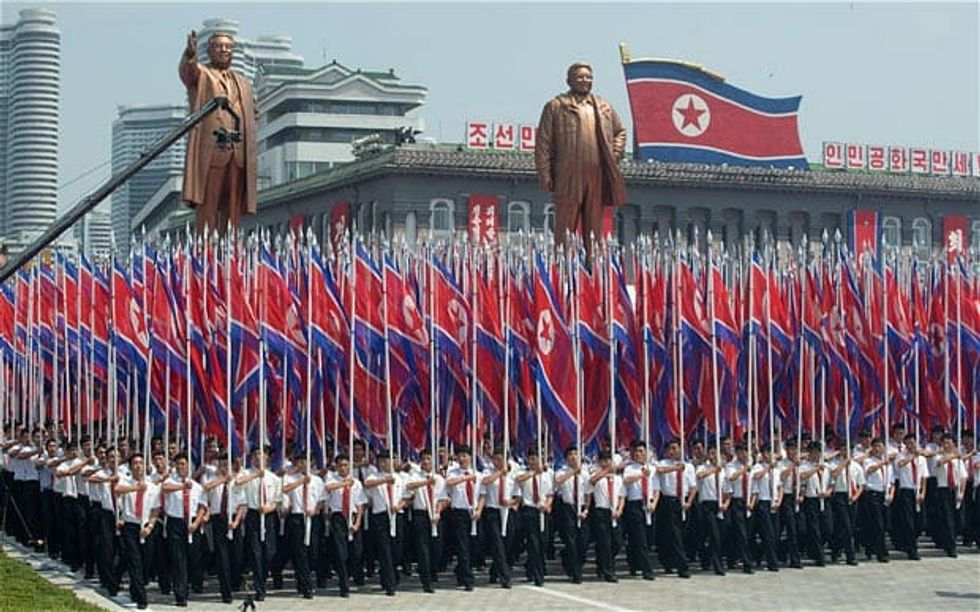The United States created North Korea. For those in the back row, let me repeat this louder.
The United States created North Korea.
Recent escalation of events in North Korea has instigated powerful political rhetoric throughout the world and within the United States. Everyone suddenly has an opinion concerning the decades long conflict, and usually that opinion involves, "blowing the nation off the face of the Earth."
I'm not kidding. I heard a teacher on the Oakwood campus at University of North Georgia advocate a nuclear holocaust, leaving no distinction between innocent civilians and the tyrannical government.
Too many political figures and concerned global citizens cannot make a distinction between civilians and Kim Jung Un. That being said, in no way do I advocate American interference in North Korea. In fact, American interference on the Peninsula is a contributing reason why this conflict exists to begin with. I will not attempt to persuade anyone to a solution regarding how to stop the human rights abuses of the North Korean government, but I will attempt to provide context.
The formation of North Korea begins with a united Korea's annexation by Japan in 1910. They served as a colony until the end of World War II. The Japanese government institutionalized rape, draft and slavery. They committed Korea to total war.
In 1944, President Franklin Delano Roosevelt considered splitting Korea into four regions divided like a pie between four different nations. However, Roosevelt died and Truman took over in 1945. It was Truman who made the decision to drop the atomic bomb on Japan, bringing an end to World War II.
Global actors had not anticipated such a swift conclusion to the war, and Harry Truman did not feel that there was enough time to execute Roosevelt's plan. In 1948, he decided to split the nation in half along the 38th parallel,giving the northern half to Joseph Stalin. Neither Truman nor Roosevelt felt it worthwhile to consult with the nation before changing its physical and cultural landscape.
Inevitably, war broke out in 1950. The Democratic People's Republic of North Korea invaded the Republic of Korea, and the United States responded in coalition with the Republic of Korea to drive North Korea back to the 38th parallel. General Douglas McArthur and Harry Truman were not content with victory and pushed past the 38th parallel to take the entire country under the pretext of "liberation." This intimidated a previously neutral Communist China, who warned that consequences would occur if the United States pressed against the Yalu Boundary.
Truman considered better of the matter and ordered McArthur to back down. McArthur pressed on toward the boundary, and Mao Zedong, leader of Communist China, committed (overtime) close to a 1,000,000 Chinese soldiers to the war. Eventually, an armistice was reached, and both nations resumed to their previous positions on the 38th parallel.
However, let's not confuse the armistice with peace between the Democratic People's Republic of North Korea and the Republic of Korea. Charles K. Armstrong, author of The Koreas, describes the situation as thus: "The Korean War did not end in July 1953. The belligerent parties signed a truce, a temporary cessation of hostilities." He goes on to write that "indeed, two mutually hostile Korean regime's armed themselves to the teeth in case of renewed hostilities on the peninsula."
The Korean War was instigated by the DPRNK but continued by the United States and the Republic of Korea, which resulted in 2,824,800 casualties for both combatants and noncombatants. The U.S. went on a campaign that led to the brutalization of North Korean civilians and bombed every noteworthy North Korean city. This left indelible scars for those living in that country and still exists in living memory.
War with the United States and occupation by the Japanese has made North Koreans extremely paranoid regarding influences of outside forces. They are a people of a distinct culture who place a remarkable emphasis on history. They don't mistrust the United States for some abstract reason but because of actual offenses made by the U.S. government.
The ultimate takeaway from this piece is not to persuade anyone on any particular solution to the problems that North Korea presents. I do not feel qualified to make that decision. What I ask is for people to be responsible citizens when discussing the DPRNK, and try to understand the motivating factors behind the nation's isolationism.

